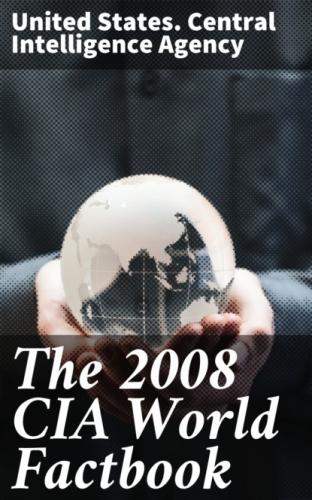Political parties and leaders:
Croatian Democratic Congress of Slavonia and Baranja or HDSSB
[Vladimir SISLJAGIC]; Croatian Democratic Union or HDZ [Ivo
SANADER]; Croatian Party of the Right or HSP [Anto DJAPIC]; Croatian
Peasant Party or HSS [Josip FRISCIC]; Croatian Pensioner Party or
HSU [Vladimir JORDAN]; Croatian People's Party or HNS [Vesna PUSIC];
Croatian Social Liberal Party or HSLS [Djurdja ADLESIC]; Independent
Democratic Serb Party or SDSS [Vojislav STANIMIROVIC]; Istrian
Democratic Assembly or IDS [Ivan JAKOVCIC]; Social Democratic Party
of Croatia or SDP [Zoran MILANOVIC]
Political pressure groups and leaders:
other: human rights groups
International organization participation:
ACCT (observer), Australia Group, BIS, BSEC (observer), CE, CEI,
EAPC, EBRD, FAO, IADB, IAEA, IBRD, ICAO, ICC, ICCt, ICRM, IDA, IFAD,
IFC, IFRCS, IHO, ILO, IMF, IMO, IMSO, Interpol, IOC, IOM, IPU, ISO,
ITSO, ITU, ITUC, MIGA, MINURSO, MINUSTAH, NAM (observer), NSG, OAS
(observer), OIF (observer), OPCW, OSCE, PCA, PFP, SECI, UN, UN
Security Council (temporary), UNCTAD, UNDOF, UNESCO, UNFICYP, UNIDO,
UNIFIL, UNMIL, UNMIS, UNMOGIP, UNOCI, UNOMIG, UNWTO, UPU, WCO, WFTU,
WHO, WIPO, WMO, WTO, ZC
Diplomatic representation in the US:
chief of mission: Ambassador Kolinda GRABAR-KITAROVIC chancery: 2343 Massachusetts Avenue NW, Washington, DC 20008 telephone: [1] (202) 588–5899 FAX: [1] (202) 588–8936 consulate(s) general: Chicago, Los Angeles, New York
Diplomatic representation from the US:
chief of mission: Ambassador Robert A. BRADTKE embassy: 2 Thomas Jefferson Street, 10010 Zagreb mailing address: use street address telephone: [385] (1) 661–2200 FAX: [385] (1) 661–2373
Flag description:
three equal horizontal bands of red (top), white, and blue superimposed by the Croatian coat of arms (red and white checkered)
Economy
Croatia
Economy - overview:
Once one of the wealthiest of the Yugoslav republics, Croatia's economy suffered badly during the 1991–95 war as output collapsed and the country missed the early waves of investment in Central and Eastern Europe that followed the fall of the Berlin Wall. Since 2000, however, Croatia's economic fortunes have begun to improve slowly, with moderate but steady GDP growth between 4% and 6% led by a rebound in tourism and credit-driven consumer spending. Inflation over the same period has remained tame and the currency, the kuna, stable. Nevertheless, difficult problems still remain, including a stubbornly high unemployment rate, a growing trade deficit and uneven regional development. The state retains a large role in the economy, as privatization efforts often meet stiff public and political resistance. While macroeconomic stabilization has largely been achieved, structural reforms lag because of deep resistance on the part of the public and lack of strong support from politicians. The EU accession process should accelerate fiscal and structural reform.
GDP (purchasing power parity):
$69.59 billion (2007 est.)
GDP (official exchange rate):
$51.36 billion (2007 est.)
GDP - real growth rate:
5.7% (2007 est.)
GDP - per capita (PPP):
$15,500 (2007 est.)
GDP - composition by sector:
agriculture: 7.2% industry: 31.7% services: 61.2% (2007 est.)
Labor force:
1.749 million (2007 est.)
Labor force - by occupation:
agriculture: 2.7% industry: 32.8% services: 64.5% (2004)
Unemployment rate:
11.8% (2007 est.)
Population below poverty line:
11% (2003)
Household income or consumption by percentage share:
lowest 10%: 3.4% highest 10%: 24.5% (2003 est.)
Distribution of family income - Gini index:
29 (2001)
Investment (gross fixed):
30.1% of GDP (2007 est.)
Budget:
revenues: $22.56 billion expenditures: $23.92 billion (2007 est.)
Fiscal year:
calendar year
Public debt:
47.8% of GDP (2007 est.)
Inflation rate (consumer prices):
4.5% (2007 est.)
Central bank discount rate:
9% (31 December 2007)
Commercial bank prime lending rate:
9.33% (31 December 2007)
Stock of money:
$11.61 billion (31 December 2007)
Stock of quasi money:
$31.86 billion (31 December 2007)
Stock of domestic credit:
$45.7 billion (31 December 2007)
Agriculture - products:
wheat, corn, sugar beets, sunflower seed, barley, alfalfa, clover, olives, citrus, grapes, soybeans, potatoes; livestock, dairy products
Industries:
chemicals and plastics, machine tools, fabricated metal, electronics, pig iron and rolled steel products, aluminum, paper, wood products, construction materials, textiles, shipbuilding, petroleum and petroleum refining, food and beverages, tourism
Industrial production growth rate:
5.3% (2007 est.)
Electricity - production:
12.41 billion kWh (2006 est.)
Electricity - consumption:
15.57 billion kWh (2006 est.)
Electricity - exports:
3.306 billion kWh (2006 est.)
Electricity - imports:
8.374 billion kWh (2006 est.)
Electricity - production by source:
fossil fuel: 33.6% hydro: 66% nuclear: 0% other: 0.4% (2001)
Oil - production:
23,620 bbl/day (2007 est.)
Oil - consumption:
101,800 bbl/day (2006 est.)
Oil - exports:
43,680 bbl/day (2005)
Oil - imports:
112,200 bbl/day (2005)
Oil - proved reserves:
79.15 million bbl (1 January 2008 est.)
Natural gas - production:
1.58
